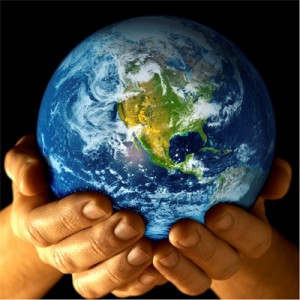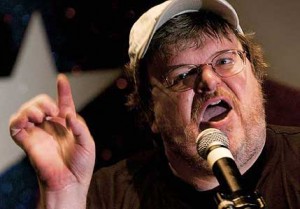 Earth Day is upon us again. It all began on April 22, 1970, when a United States Senator named Gaylord Nelson founded “an environmental teach-in” which he called, somewhat inauspiciously, Earth Day.
Earth Day is upon us again. It all began on April 22, 1970, when a United States Senator named Gaylord Nelson founded “an environmental teach-in” which he called, somewhat inauspiciously, Earth Day.
The first Earth Day was confined to the United States, but the first Earth Day national coordinator, one Denis Hayes, soon made it international, organizing events in approximately 140 nations.
This year rather than celebrating Earth Day by advocating still more government bureaus, which will then determine for the rest of us what we can do with our property, I suggest we instead celebrate the only real way to clean up and beautify the planet: private property rights and private stewardship.
The right to property is, as James Madison said, “the guardian” of every other right. Freedom and private property are inseparable. Property is freedom: you cannot be free if you are not free to produce, use, and dispose of those things necessary to your life.
“Control the property, control the person,” said Lenin, whose birthday, not quite coincidentally, is April 22nd.
Property, like every other right, is first and foremost the right to act: specifically, it is the right to produce, exchange, and use.
“Property is not only money and other tangible things of value, but also includes any intangible right considered as a source or element of income or wealth…. It is the right to enjoy and to dispose of certain things in the most absolute manner” (Electric Law Library).
Money is property.
The only alternative to private property is government or communal ownership of property, both of which amount to the same thing in the end: a bureau of centralized planners controlling the property.
“That alone is a just government which impartially secures to every man whatever is his own,” said James Madison.
If you desire to know precisely what someone’s political viewpoint is, all you need do is find out his or her stance on property; for it is through the stance on property that the entire political philosophy is disclosed. You needn’t listen to anything anyone says about “freedom” or “liberty” or any of these other easy platitudes: no one in her or his right mind will go against those things. Instead, simply check the stance on property. If someone doesn’t believe in full private property rights, that person is, to the exact extent he or she denies private property rights, a statist.
Property is the sine-qua-non of human freedom.
To defend freedom, therefore, you must start by defending the unalienable right to property.
The diversity in the faculties of men, from which the rights of property originate, is not less an insuperable obstacle to a uniformity of interests. The protection of these faculties is the first object of government (James Madison, Federal Papers 10).
Government is instituted no less for protection of the PROPERTY, than of the persons (James Madison, Federalist Paper #54, emphasis in the original).
The true foundation of republican government is the equal right of every citizen in his person and property and in their management (Thomas Jefferson to Samuel Kercheval).
A right to property is founded in our natural wants, in the means with which we are endowed to satisfy these wants, and the right to what we acquire by those means without violating the similar rights of other sensible beings (Thomas Jefferson to Pierre Samuel Dupont de Nemours).
The political institutions of America, its various soils and climates, opened a certain resource to the unfortunate and to the enterprising of every country and insured to them the acquisition and free possession of property (Thomas Jefferson: Declaration on Taking Up Arms).
The moment the idea is admitted into society, that property is not as sacred as the laws of God and that there is not a force of law and public justice to protect it, anarchy and tyranny commence (John Adams).
Environmentalism has so thoroughly permeated world culture that the saving-the-planet rhetoric is accepted even by those who don’t really regard themselves as dyed-in-the-skein environmentalists. It is taught as holy writ in public schools, and it’s espoused by poets, priests, and politicians alike.
This monstrous ideology would, given the first opportunity, destroy humankind, a fact of which the leaders of this movement make no secret.
It is therefore of great importance to expose this ideology for what it actually is: a neo-Marxist philosophy that masquerades as something benevolent and life-affirming, but which in reality explicitly calls for humans to be subordinated to nature, via an elite bureau of centralized planners who, as you would suspect, are the ones that get to decide for the rest of us how we must live.
It was Jean-Jacques Rousseau who first began propounding the immanent-goodness-of-nature-untouched-by-man ideology. Rousseau also deplored “the corrupting influence of reason, culture, and civilization.” In fact, Rousseau, like many of our current politicians, also preached economic egalitarianism and tribal democracy, the “collective will,” and the primacy of the group over the individual. In a great many ways, Rousseau is the founder of present-day environmentalism.
His so-called Eden Premise was picked up by all the pantheists and transcendentalists, such as Henry David Thoreau, John Muir (founder of Sierra Club), Aldo Leopold (who helped found the Wilderness Society), and of course the propagandist Rachel Carson.
When, in 1860, Thoreau wrote that forests untouched by humans grow toward “the greatest regularity and harmony,” he inadvertently changed the life of a biologist named George Perkins Marsh, who in 1864 wrote a book called Man and Nature. In this extraordinarily influential book, George Marsh also tried to convince us that, absent humans, mother nature and her processes work in perfect harmony:
“Man” (said Marsh) “is everywhere a disturbing agent. Wherever he plants his foot, the harmonies of nature are turned to discord…. [Humans] are brute destroyers … [Humans] destroy the balance which nature had established.”
“But” (he continued) “nature avenges herself upon the intruder, [bringing humans] deprivation, barbarism, and perhaps even extinction.”
Just as Thoreau influenced George Marsh, so George Marsh influenced a man named Gifford Pinchot, and also a man named John Muir.
Gifford Pinchot was a utilitarian who loathed private ownership of natural resources. He was also the first chief of the United States Forest Service under Republican President Theodore Roosevelt.
Gifford Pinchot was a collectivist who believed in sacrificing individuals and their property for the sake of “the greatest number.”
It was in large part because of Pinchot that the United States’ federal government increased its land holdings dramatically, so that today over one third of America is owned by the federal government — which holdings comprise over half of America’s known resources, including “a third of our oil, over 40 percent of salable timber and natural gas, and most of the nation’s coal, copper, silver, asbestos, lead, and other minerals.”
In his excellent account of American environmentalism, Philip Shabecoff says this:
“Pinchot wanted the forests managed for their usefulness, not for their beauty… He was not interested in preserving the natural landscape for its own sake.”
At the very least, Pinchot, a conservationist, was, however, still semi pro-human.
John Muir, on the other hand, Pinchot’s nemesis, was not pro-human. In fact, he was the diametric opposite.
It was John Muir, a Scottish immigrant, who introduced misanthropy into the environmental pseudo-philosophy, which misanthropy reigns supreme to this very day.
“How narrow we selfish, conceited creatures are in our sympathies!” said John Muir, also an unapologetic racist. “How blind to the rights of all the rest of creation! Well, I have precious little sympathy for the selfish propriety of civilized man, and if a war of races should occur between the wild beasts and Lord Man, I would be tempted to sympathize with the bears.”
From John Muir, it was only a short step to one Ernst Haeckel (1834 – 1919), a German zoologist, who told us that individuals don’t actually exist. Human individuals do not possess an individual consciousness, he said, because humans are only a part of a greater whole, and 1866 Haeckel coined that fated term “ecology,” which he defined as “the whole science of the relations of the organism to the environment.”
It was an Oxford botanist named A. G. Tansley who, in 1935, introduced the word “ecosystem.”
According to this same Tansley, individual entities don’t exist but are merely part of “the basic units of nature on the face of the earth.”
Aldo Leopold’s wildly popular Sand County Almanac was published in 1948. It preached “the pyramid of life,” and in order to preserve this pyramid, Leopold told us that federal governments must “enlarge the boundaries of the community to include soils, waters, plants, and animals [which] changes the role of Homo Sapiens from conqueror of the land-community to plain member and citizen of it.”
A Norwegian named Arne Naess (1913 – 2009) also believed that human individuals don’t actually exist. Only ecosystems do. It was Naess who first argued that the “shallow ecology,” as he called it, “of mainstream conservation groups” benefits humans too much. Thus, Naess began calling for “deep ecology” — i.e. “biospheric egalitarianism with the equal right [of all things] to live and blossom.”
These are just a small handful of the phrases and catchphrases that have now frozen into secular dogma, and which Rachel Carson, with her puerile pen, brought to the mewling masses. Her book Silent Spring opens like this:
There once was a town in the heart of America where all life seemed to live in harmony with its surroundings. The town lay in the midst of a checkerboard of prosperous farms, with fields of grain and hillsides of orchard where, in spring, white clouds of bloom drifted above the fields. In autumn, oak and maple and birch set up a blaze of color that flamed and flickered across a backdrop of pines. Then foxes barked in the hills and deer silently crossed the fields, half hidden in the mists of the fall morning… The town is almost devoid of robins and starlings; chickadees have not been present for two years, and this year the cardinals are gone too… ‘Will they ever come back?’ the children ask, and I do not have the answer.
Most sane people see through this pablum like a fishnet. It’s the insane people who have swallowed it hook, line, and sinker.
The rest, of course, is history.
 In a recent interview with CNN’s Piers Morgan, socialist documentarian Michael Moore — who, not coincidentally, made a socialist propaganda movie called Capitalism: A Love Story — revealed Monday (September 27th, 2011) what we all already knew: he has no understanding whatsoever of what capitalism really is.
In a recent interview with CNN’s Piers Morgan, socialist documentarian Michael Moore — who, not coincidentally, made a socialist propaganda movie called Capitalism: A Love Story — revealed Monday (September 27th, 2011) what we all already knew: he has no understanding whatsoever of what capitalism really is. 

